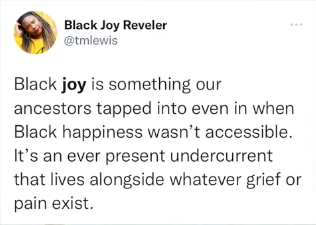By Lauren Wellbank (she/her), Freelance Writer, Public Speaker, and Domestic Violence Survivor
After escaping my abuser back in 2006 I struggled with the idea of sharing what had happened to me. I’d put so much time and energy into keeping the secret during our relationship that it almost felt like a betrayal to admit what had been going on behind closed doors.
Unfortunately, keeping that secret stopped me from starting my healing journey. Worst of all, it also kept me from learning from my experience.
Once I started writing about my experience with intimate partner violence (IPV), I was able to address my trauma and tackle the feelings that had remained all these years later. While I chose a public stage to tell my story, other survivors may benefit more from journaling about their experiences using a format known as expressive writing.
“We are powerful because we have survived.” ― Audre Lorde
What is Expressive Writing?
Expressive writing involves unloading all your thoughts, feelings, and memories onto the page as they come to you, in your preferred language, without any concerns about grammar, sentence structure, or continuity.
The goal is to capture the feelings a writer has about the experiences they’re writing about.
It's an accessible form of healing because all a person needs are their own memories of an event.
Expressive Writing Shows Benefits in Healing
The idea that writing about our experiences can help us heal from them has been around for a while, but James Pennebaker’s 1986 study highlighted the value it holds for trauma survivors.
Since then, many studies have confirmed those benefits.
In 2019, one study showed that trauma survivors may improve overall health by reducing anxiety, stress, and more simply by journaling about their experiences.
“Imagine changing the trajectory of your life by simply making time for writing and centering you everyday.” – Arlene C. Vassell
While some people may experience initial short-term setbacks, which is understandable given the nature of the content they are writing about especially when it comes to survivors of IPV, there are noted long-term benefits that may make the short-term struggles worthwhile for many.
Longer-term benefits:
- Reduction in stress-induced medical issues
- Improved immune function
- Lower blood pressure
- Better lung and liver function
- An increase in feelings of well-being and improved mood
- Reduction in post-traumatic symptoms like intrusion and avoidance
I initially struggled with guilt and embarrassment when I began writing about my experience, even when I was only writing for myself. However, the more I wrote and the more dedicated I became to getting my thoughts down on paper, the quicker I was able to see past the abuse and focus on the feelings I had surrounding it. Here’s what other survivors have shared about their experiences with journaling:
“I wrote very little while I was in my abusive relationship, but I still have a couple of those pages around and it's always quite shocking to read them. Now that I am free from that toxic environment, I write in my journal every day and it helps me process a lot of my current situations. It's cool to see how far I have grown in mindset and confidence.” – Survivor
“The pages of my journal are heavy with the burden of trauma, so my heart and soul don’t have to be.” – Survivor
You Don’t Need Much to Get Started
Expressive writing relies on tools that most people already have on hand or can access at little cost. In addition to the time commitment – most experts seem to agree that survivors should set aside between 15 to 20 minutes for each journaling session, three to four times a week – there are only a few supplies needed to get started:
- A quiet and safe space to write
- Somewhere private to keep what you’ve written
- A writing medium (anything from pencil and paper to a computer will work)
Expressive Writing as a Tool for Justice
It’s safe to say that the experts see benefits in having those who have experienced trauma write about the thoughts and feelings surrounding those events. For people currently experiencing IPV, journaling about events at home can help create a record of what has been happening which can later be used to help support claims of abuse.
Some things that those experiencing IPV may want to include in the journaling are:
- Names of witnesses (who was there when abuse happened)
- Dates and times
- As much as you can remember about what was said or done during the incident
- How you responded
- A list of injuries or damages that occurred during the incident
One of the most important steps I took to document my abuse back in 2006 was sitting down with an advocate and writing through a particularly violent experience. We had 10 pages of handwritten notes to submit to the judge when I finally applied for a protection from abuse order, which helped to support my claim and prove a pattern of abuse.
Helping Victims/Survivors Get Started
The best thing you can do if you’re looking for ways to support someone is to remind them that they can hide their journals and that most likely nobody is going to read what they wrote unless they wish to share. You can offer ideas to help those who are still in abusive situations to keep their journals safe from the people who are abusing them.
Victims/Survivors of IPV are especially prone to experiencing guilt and shame when it comes to their experiences and may be hesitant to write down anything that happened out of fear it will confirm their beliefs that they caused the abuse.
Journaling about abuse should be about the victim/survivor’s path to healing first and foremost. However they decide to use their words – whether it be legally or to share with a mental health professional – is up to them and they should never be put in a position where they have to share their journals.
NRCDV Offerings: Journaling Resources for Survivors and Advocates
This Domestic Violence Awareness Month (DVAM), NRCDV’s activities, campaigns, and resources promote the alignment of our values with our actions as we navigate intersecting realities, grounded in our shared commitment to No Survivor Justice Without Racial Justice. For DVAM 2022, we are centering humanity, wellness, joy, and connectedness for advocates, survivors, and all who work alongside us towards collective liberation.
In line with our DVAM theme and ongoing commitment, we believe that journaling is a powerful tool for survivors and advocates as we center healing and practice Black joy in our path towards liberation. We share the following journal prompts to help survivors and advocates get in touch with and reflect on Black joy. These prompts were provided by Black mental health professionals Meghan Watson and Shani Tran.
- "What Am I Grateful For in My Blackness?"
- "What Do I Add to Black Culture?"
- "When Was a Blissful Moment in My Childhood?"
- "Visualize the Most Relaxing Holiday. What Emotions Was I Feeling? What Activities Was I Doing?"
Additional journaling prompts, offered by author Arlene C. Vassell, include:
- Name 3-5 things that give you real joy. How can you continuously incorporate these things in your daily routine?
- What are you most grateful for at this moment? Why?
- What cultural traditions are you most grateful for?
- Describe your perfect day.
- What is something you want to change about your daily routine?
All you need to start journaling is a pen and a piece of paper. But amazing journals are available to offer additional inspiration, prompts and activities to support you in this journey. NRCDV staff offer these examples to get you started!
- Journal of Radical Permission: A Daily Guide For Following Your Soul’s Calling. By adrienne maree brown and Sonya Renee Taylor: Based on the bestselling philosophies of radical self-love, emergent strategy, and pleasure activism, this journal gives you permission to love yourself, deeply, as you are. Journaling to these prompts will help you surrender to your body’s needs instead of forcing yourself into cramped disciplines. It will encourage you to become awed by the natural beauty of your divine self instead of being rampantly self-critical. It will aid you in embracing your shadows and accepting responsibility for your impact all while liberating you to just be.
- My Life. My Choices. My Story. My Journal.: “Thriving, healing and hurting can all happen simultaneously.” By Arlene Vassell: This inviting journal provides over 170 blank pages designed for personal reflection, creative writing, sketching and drawing. Each page contains writing prompts, including: Bible verses, inspirational quotes and thought-provoking questions. This journal is perfect for recording daily activities and learning experiences. It provides plenty of space to keep track of personal thoughts and feelings, brilliant ideas and bold steps towards achieving personal goals.
- Becoming: A Guided Journal for Discovering Your Voice. By Michelle Obama: This guided journal includes thought-provoking prompts designed to help you reflect on your personal and family history; your goals, challenges, and dreams; what moves you and brings you hope; and what future you imagine for yourself and your community. Writes Mrs. Obama in the Introduction to the Becoming journal, “I hope you’ll use this journal to write down your experiences, thoughts, and feelings, in all their imperfections, and without judgment…We don’t have to remember everything. But everything we remember has value.”
- Heart Talk: The Journal: 52 Weeks of Self-Love, Self-Care, and Self-Discovery. By Cleo Wade: Based on Cleo Wade’s bestselling book, Heart Talk, these pages string together gentle prompts, words of encouragement, and inquiries into the body, mind, and soul. Inside, you will find the opportunity to let go, feel what you need to feel, discover your own poetic wisdom, and become the person you want to be. As Cleo writes, “The best thing about your life is that it is constantly in a state of design. This means you have, at all times, the power to redesign it. Make moves, allow shifts, smile more, do more, do less, say no, say yes—just remember, when it comes to your life, you are not only the artist but the masterpiece, as well.”














